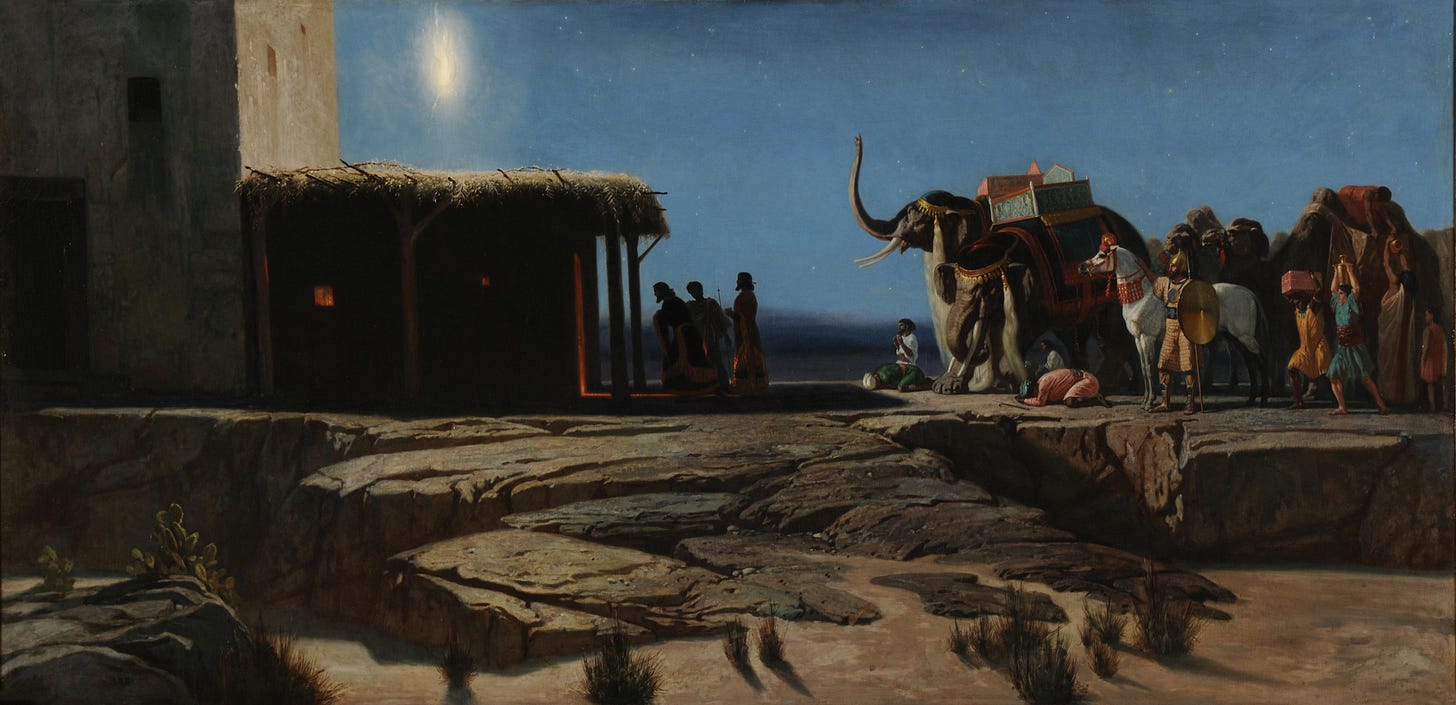This Advent Edition of Ecstatic features Ken Shigematsu
In the film Contact, there is an emotional scene where the astronomer Ellie Arroway, played by Jodie Foster, explains to her friend her decision to venture into outer space, despite the clear dangers. She says, “For as long as I can remember, I’ve been searching for something, some reason why we’re here. What are we doing here? Who are we? If this is a chance to find out even just a little part of that answer . . . I don’t know, I think it’s worth a human life. Don’t you?”
We may not have a yearning to venture into outer space, but at a conscious or unconscious level, we all want to know why we’re here—we long to discover the meaning of our existence. Despite this innate human longing, we discover something surprising in another story with cosmic proportions. In the story of the Magi, it is revealed that we are not the greatest seekers—God is.
The Magi have been described across many centuries as the wise men. Were they wise? Yes, but not in the way we typically think of. They were experts in discerning the meaning of the stars.
A Jewish person would have regarded the Magi— magicians, astrologers, and sorcerers—as idolaters, as Gentiles who were racial, cultural, and spiritual outsiders in the family of the one true God.
So why does Matthew include these Gentiles in an account written primarily to Jews? It seems that Matthew wants to show us that God seeks outsiders and invites them to the birthday party of his Son. No matter what our racial or cultural background, regardless of what we have or haven’t done, or how we feel we’ve fallen short of our own standards or our Creator’s—God also seeks us out.
In Matthew’s account, we see that while the star leads the Magi to Jerusalem, it’s Scripture that ultimately leads them to Jesus. When King Herod heard about the star that announced the birth of the great king, he gathered all the high priests and religious scholars and asked where the Messiah was to be born. “In Bethlehem,” they answered. Then they quoted words of Scripture from Micah 5:
But you, Bethlehem, in the land of Judah, are not the least among the rulers of Judah; for out of you shall come a ruler who will shepherd my people Israel. (Matt. 2:6)
The star got the Magi to the “target” of Jerusalem, but it was Scripture that took them to the “bull’s-eye” of Bethlehem—to Jesus. God can use all kinds of things, including beauty and affliction, to draw us closer to Jesus, but the vehicle that God often uses to lead us most clearly to Jesus is Scripture.
However, simply being exposed to Scripture or knowing the Bible isn’t enough. The chief priests and teachers of the law knew that a star had announced the birth of the great king and that this anointed ruler, the Messiah, would be born in Bethlehem, yet they did not make the brief six-mile journey there.
It’s possible for us to be exposed to Scripture and yet not respond. Years later, Jesus would say to the religious elite, “You study the Scriptures diligently because you think that in them you have eternal life. These are the very Scriptures that testify about me, yet you refuse to come to me to have life” (John 5:39–40).
This Advent, as we allow the wonder of the stars and the conviction of Scripture to lead us afresh to Jesus, we can know great joy like the Magi of old. And also like the Magi, as we bow down in adoration before Jesus, we will find in him the true meaning of our lives.
Ken Shigematsu
Pastor & Writer
Ken is the senior pastor of Tenth Church in Vancouver. He’s the author of bestsellers God in My Everything and Survival Guide for the Soul.
What did you think of this essay? Share your thoughts with a comment!
This piece was originally featured in A Time for Wonder, the Advent Devotional from Christianity Today









Thank you! It is always amazing to me that the people of God's heart were so blinded! I am thankful every day the Jesus came for everyone in the world, not just his chosen people!
Yet I'd note too that the magi went to Bethlehem to the place where the star stopped: see Matthew 2:9 After they had heard the king, they went on their way, and the star they had seen when it rose went ahead of them until it stopped over the place where the child was. So it seems to me that the matter is even more dialogical: the magi's own learning still comes into it: there's a confluence of their learning and scriptural testimony mutually informing one another.